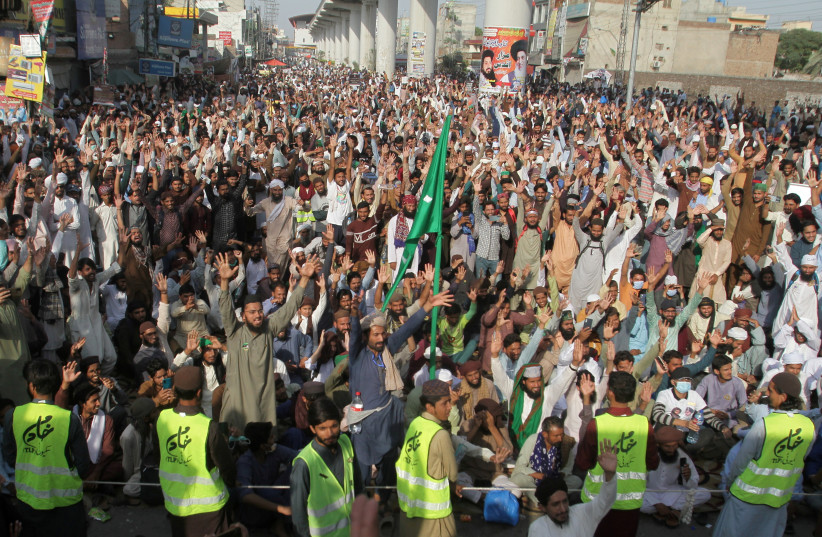The Election Commission of Pakistan revealed the inconclusive outcomes of the 2024 general elections on Sunday, highlighting a fragmented National Assembly with no party securing a simple majority. Independent candidates, many backed by Imran Khan, emerged with 101 seats, while the Muslim League-N and People’s Party obtained 75 and 54 seats, respectively.
For more stories from The Media Line go to themedialine.org
The results were immediately contested by the Pakistan Tehreek-e-Insaf (PTI) party, led by Imran Khan, which called for the resignation of the chief election commissioner. PTI spokesperson Rauf Hassan criticized the Election Commission for enabling “this blatant theft of democracy.” Despite the PTI’s rejection of the results, interim chairman Barrister Gohar Ali Khan asserted the party’s significant seat count and its intention to form government in key provinces.
Shafqat Ali Kiyani, a Rawalpindi-based expert on parliamentary affairs, told The Media Line, “Since PTI’s electoral symbol was taken away by the Election Commission and subsequently by the Supreme Court of Pakistan, the party was struck from the Election Commission’s list of political parties. Pakistan Tehreek-e-Insaf will undoubtedly not be recognized as a parliamentary party, so the elected independent candidates supported by PTI will have to form
their group in any case.”
According to Kiyani, this will not be the first time in the political history of Pakistan that the symbol of the sword has been taken away from the Pakistan People’s Party. The last time this happened, they formed a group called People’s Party Parliamentarians, which still exists. Thus, the PTI-backed elected independent candidates must institute a separate group.
Within three days of receiving the success notification, independent members are required by rule to join any political party.

“The prevailing political uncertainty will end in the next few days, but because the people have endorsed Imran Khan, Pakistan’s powerful establishment must consider widespread sentiments,” Kiyani emphasized to The Media Line.
The election process wasn't entirely peaceful
Additionally, at least two people were reportedly killed, and 11 were injured on Friday when PTI workers clashed with police during a protest against alleged election results tampering in the Shangla district of northwestern Khyber Pakhtunkhwa province.
Irfan Babak, a Swat-based human rights lawyer and an independent observer, told The Media Line, “Violent protests erupted when a large number of people supporting Syed Fareen, an independent candidate backed by the Pakistan Tehreek-e-Insaf party, took to the streets after the Election Commission of Pakistan declared Ameer Maqam the winner of the general elections on Thursday.”
Babak further explained that “before the Election Commission’s announcement, it was declared on TV channels that Imran Khan-backed candidate Syed Fareen was winning with a huge lead, but [allegedly] the result was tampered with and Ameer Maqam was declared the winner.”
In additional places, there were also reports of accusations of election tampering, with contenders asserting that poll officials tempered the results, which raised concerns over the credibility of fair and free elections. Allegations of electoral interference, violence, and human rights restrictions have drawn global attention, urging Pakistani authorities to conduct thorough investigations to uphold democratic norms and ensure the integrity of the electoral process.
The United States, through State Department spokesman Mathew Miller, condemned the electoral violence and the restrictions on human rights and fundamental freedoms. Similarly, the European Union, represented by foreign policy chief Josep Borrell, expressed regrets over allegations of severe interference in the electoral process, including the arrests of political activists.
The United Kingdom, through Foreign Secretary Lord David Cameron, also voiced concerns over the fairness and inclusivity of the elections. The UK’s statement pointed out issues such as preventing some political parties and leaders from contesting the elections, restrictions on internet access, significant delays in result reporting, and claims of irregularities in the counting process
